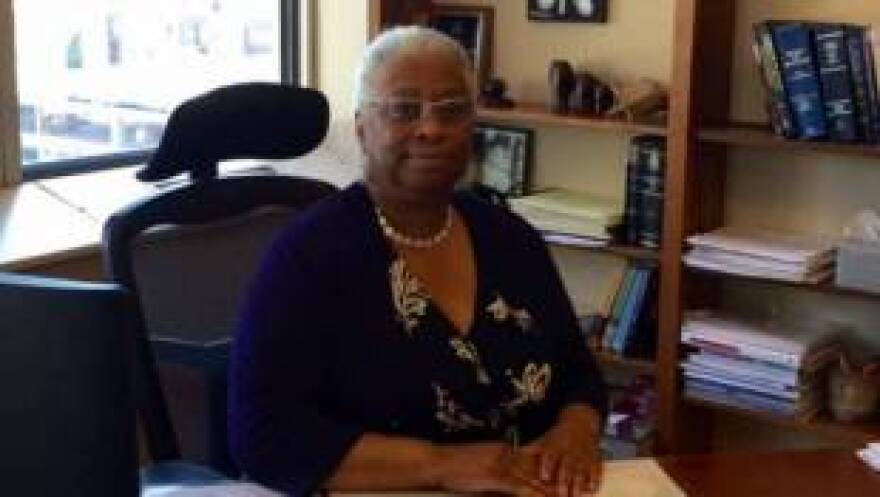More than 5,000 people incarcerated in Indiana are also navigating mental health issues -- this population is at high risk for recidivism. A growing number of Indiana counties are working to stop this cycle through alternative court programs. One alternative court in Marion County hopes to anchor itself permanently in the criminal justice system.
The Marion County Jail in Indianapolis is at capacity. And over a third of the inmates, close to 900 people there, are struggling with addiction, schizophrenia, depression or some other mental health issue.
Col. Louis Dezelan with the Marion County Sherriff’s office said the jail spends nearly $8 million a year treating these people.
"The truth is that the Sherriff is now the biggest mental health caretaker in the state of Indiana," Dezelan said. "And we think that’s wrong. We’re not a hospital we’re a jail."
Most of the money is spent on psychotropic drugs, medical needs and special staffing. Dezelan said the treatment they receive in jail isn’t making a difference. Many people with mental illness end up back behind bars.
"I’ve been told over and over again by our health care professionals that these people would not be here if they were on proper treatment, or if they were on their medications out in the community," Dezelan said.
The revolving door is especially difficult for people suffering from mental illness who have no home, job, health care, support or money.
Behavioral Health Court
Across the street at the City County Building, a mental health court is held once a week to stop this cycle. Judge Barbara Crawford started the court in early 2015 and says it is making a difference.
"There is one young woman who is going to be graduating at the end of this month. She is a single mother, has two children, very bright woman but she has all of these things that have been barriers to her," said Crawford, "and she’s worked through them all, she’s been determined and I’ve told her before…she’s my hero."
The court is called Marion County’s Behavioral Health Court. Participants work through five phases of the program that lays out a treatment plan including regular court appearances, medication compliance, drug screening, therapy and other activities to help make long-term life changes.
In 2014, the state legislature passed a bill to reduce recidivism for people with mental health problems and make programs competitive for grant money. This court brings together prosecutors, defense attorneys, judges and non-profits to plan and provide wrap-around services, supervision and support.
Jennifer Fillmore is the director of grants for Centerstone, a nonprofit behavioral services organization that hires recovery coaches to work with the participants.
"Most all of them have co-occurring disorders. They have substance abuse and mental health disorders," explained Fillmore. "And helping people transition out of the jail and get their medication, do they have to be hooked up on work release, get to treatment, all of that stuff is so overwhelming for folks. And, a lot of times, honestly, it is why they don’t make it when they first come out of jail."
Right now the court has 25 people enrolled and has only graduated two people so far. Another two are set to complete the program this month.
The United Way of Central Indiana is helping fund the Marion County Behavioral Court and Vice President of Community Impact Christie Gillespie says they would like to share their experience with state leaders and legislators.
"Because you can imagine, if we could take this to scale -- both increasing the number of cases here in Marion County, but across the state -- you can imagine the resources that could be not only saved… but also re-directed to get people well," Gillespie said.
The Marion County Behavioral court is going through the process of becoming certified through the Indiana Supreme Court. Judge Crawford says this was a key component she wanted to work towards since the start.
"That it was part of the criminal court system, just like the drug court or the reentry court where it doesn’t matter who the judge is, that court is going to be there to satisfy those folks needs," Crawford stressed.
Right now Crawford is the only judge working cases with the Behavioral Health Court with one session a week. If the Marion County court was certified, numerous judges would be involved, more sessions every week and more people with mental illness getting the treatment they need in the community instead of jail.

